Writing: Poetry
Dora Shulner
Dora Shulner was a Yiddish writer who vividly evoked for her readers life in the Pale of Settlement before, during, and after the Russian Revolution and Civil War. She candidly portrayed women in their most intimate relationships with men, revealing the complexity of their disappointments and aspirations.
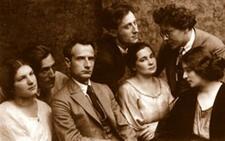
Esther Shumiatcher-Hirschbein
Yiddish writer Esther Shumiatcher-Hirschbein was born in Belarus in 1899 and emigrated to Calgary, Canada, with her family in 1911. Her poetry devoted to her pregnancy and childbirth were considered groundbreaking, along with other themes in her work, including grief, marriage, sexuality, and widowhood.
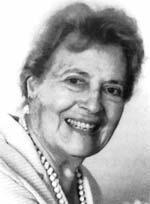
Virginia Snitow
Virginia Levitt Snitow was a multifaceted woman who was a teacher, political activist, pre-Second Wave feminist, poet, writer and founder of US/Israel Women to Women. Ahead of her time in the fight for both civil and women’s rights, Snitow was unafraid to take unpopular stances when fighting for others.
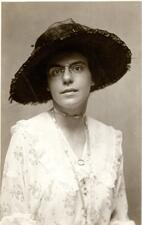
Emily Solis-Cohen
Alice Hyneman Sotheran
Muriel Spark
Muriel Spark was a Scottish-Jewish novelist, short story writer, literary critic, poet, editor, and essayist. While many critics marginalize Spark as a “Catholic writer,” it is clear that the wit, intelligence and subversiveness of her fiction are driven not by an unchanging morality but by a radical singularity.

Gertrude Stein
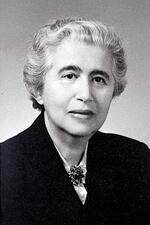
Selma Stern-Taeubler
Originally a historian and researcher in Heidelberg and Berlin, Selma Stern-Taeubler settled at the Hebrew Union College in Cincinatti after fleeing Nazi Germany. She became the first archivist of the American Jewish Archives at the college and later wrote books of fiction and nonfiction. Despite her contributions to Jewish history, American-Jewish academe has largely undervalued Stern-Taeubler’s work, which continued until her death in 1981.
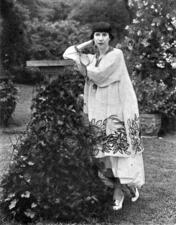
Florine Stettheimer
Florine Stettheimer's paintings are lively, diarylike accounts of her life and acute examinations of upper-class ways in New York between the wars. Her decorative style offered an alternative to prevailing modes of contemporary modernist painting. Through her work, she criticized the high-mindedness of modern art and the course of modern life.
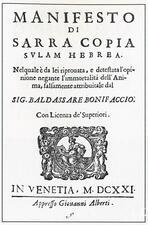
Sarra Copia Sullam
The best-known and least typical Jewish woman of early-modern Italy, Sarra Copia Sullam engaged publicly with leading intellectuals and produced poetry, letters, and polemics, particularly about the belief in immortality of the soul. The context of her literary activity was the academies (accademia) of Venice, including one that she held in her own house, which attracted a stream of distinguished visitors from the city states of northern Italy who discussed philosophy, theology, art, and literature and who engaged in domestic intrigue.
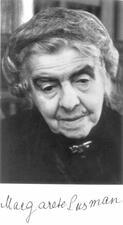
Margarete Susman
Margarete Susman published her first writings, a book of poetry, in 1901 and went on to have a prolific writing career that included plays, books, and journal articles. Susman combined literature and theory, often reflecting seminal texts of modern theory and addressing political issues and women’s rights. Her writings concentrate on the most problematic issues of the modern world: God and human beings, man and woman, Jew and Christian.
Marie Syrkin
Marie Syrkin is best known as a polemicist for the State of Israel, whose keen arguments appeared in a wide range of publications for a period of almost seventy years. Her life touched almost every significant aspect of Jewish life in America and Europe in the twentieth century.

Hannah Szenes (Senesh)
Hannah Szenes has attained legendary status in the pantheon of Zionist history. After immigrating to Israel, Szenes agreed to participate in a military operation as a paratrooper. Hungarian authorities captured her and tortured her, but Szenes refused to talk. She was killed by a firing squad in 1944. Szenes mother published her daughter’s diary, poetry, and plays posthumously.
Mahinarangi Tocker
New Zealand singer-songwriter Mahinaarangi Tocker (1955-2008) was best known as a Maori musician, but her Jewish heritage was an essential component of her identity and her music.

Marie Trommer
Marie Trommer was an early twentieth-century writer, poet, artist, art critic, and contributor to American Jewish newspapers. After attending the Cooper Union Art School, Trommer became known for her contributions to Jewish newspapers, her poetry, and her oil and watercolor paintings. She was a member of the Creative Writers Group, Society of Independent Artists, and Art Alliance of America.
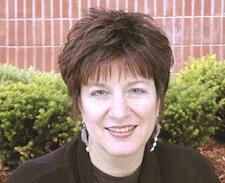
Jean Trounstine
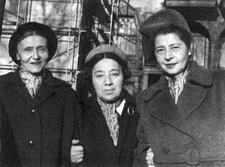
Malka Heifetz Tussman
Malka Heifetz Tussman introduced into Yiddish poetry one of the most rigid verse forms, the triolet, and mastered another, the sonnet corona. A teacher of Yiddish language and literature in the Midwest and the West, Tussman was awarded the Itzik Manger Prize for Yiddish poetry in Tel Aviv in 1981.

Miryam Ulinover
Born in Poland, Miriam Ulinover was one of the great Yiddish poets of the early twentieth century. Through her poems, she wove traditional Jewish life in the shtetl into a mythical vision of Jewish life, tradition, childhood, and identity.
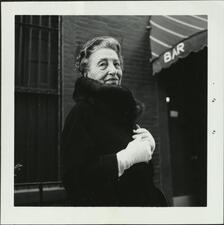
Jean Starr Untermeyer
Poet Jean Starr Untermeyer’s work was first influenced by her connections with writers Sara Teasdale, Amy Lowell, Carl Sandburg, and Robert Frost. Through her many volumes of published poetry and translations, Untermeyer explored her own personal tragedies and defended women’s right to use personal experience in their art.
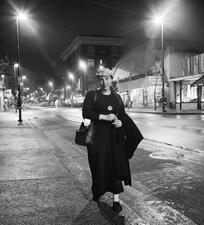
Julia Vinograd
Julia Vinograd was a street poet and the author of 68 slender volumes of verse widely admired for their vivid portraits of bohemians and street people in twentieth-century Berkeley, California. Her writing, which evolved in café open mic readings, is notable for its oratorical clarity, emotional warmth, and surreal imagination.
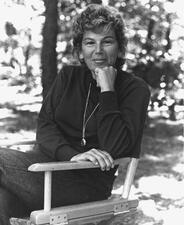
Miriam Dworkin Waddington
Miriam Dworkin Waddington was a distinguished and pioneering Canadian poet and literary critic. Her original poetry included many explicit references to her Jewish secular outlook, and other poems were infused with a commitment to social justice that drew on that same source. Impatient with the Canadian “canon” of her time, she introduced to wider audiences the works of A.M. Klein and poets writing in Yiddish with her literary criticism and her translations.
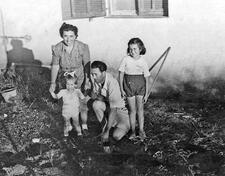
Yona Wallach
Regarded by many of her friends and colleagues as the most important among the young Israeli poets of the 1960s, Yona Wallach has had a profound effect on Israel’s cultural life ever since her works began to appear in periodicals in the early 1960s, despite her early death from cancer in 1985.
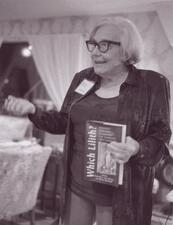
Henny Wenkart
Ruth Whitman
Poet Ruth Whitman was known for her acclaimed translations of Yiddish poetry, as well as for her own autobiographical work. She wrote a series of narrative poems in the voices of women from the past, including Lizzie Borden, Tamsen Donner, Hanna Szenes, and Hatshepsut, the only woman pharaoh in ancient Egypt. In these, she explored problems with sexual identity, love, work, and motherhood.
Bertha Wiernik
Writer and translator Bertha Wiernik is remembered by her many adaptations of Yiddish literature and dramatic works. Working closely with charitable societies throughout her career, Wiernik helped spread Jewish literature throughout New York City in the early 20th century.


